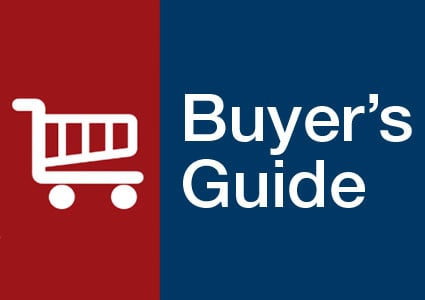- Show Menu
- Contact Us
- FAQs
- Reader Service
- Survey Data
- Survey Winners
- Testimonials
- Upcoming Events
- Webinars
- White Papers
Ease the Pain of Staff Recruitment
As anyone working in hospital pharmacy knows, using a staffing or recruiting firm is sometimes a necessity. It is important to partner with a staffing or recruiting firm that mirrors your institution’s hiring goals and culture. Throughout the relationship, you should remember that to potential candidates, your institutional image and opportunities will be portrayed by the firm. A good staffing firm relationship presents a strategic opportunity for future networking interactions.
Identifying the right staffing or recruiting firm begins in your own backyard. Start by asking your peers about their experiences, and focus on facilities whose situations were similar to yours. In addition, talk to your employees, as they may have prior experience with temporary pharmacists and staffing companies, and because they will be working alongside any new employees.
Perform Due Diligence
Screening the staffing company is important as this sets the foundation for the working relationship. First, find out what practice settings the company devotes its time to; this will tell you about the type of candidate they recruit and work with most. If you have a firm that devotes most of its time to retail, then they may prove difficult to work with if you require clinically skilled hospital pharmacists.
Second, seek to understand if they are primarily a staffing company (providing temporary, contract, or travel assignments) or a recruiting company (focusing on direct hire or permanent placement) and choose accordingly. Sometimes you might need both; a temporary pharmacist while you recruit for a permanent fit.
Ask the staffing company to walk you through its due diligence process. In addition to the standard background checks, drug screens, and license verifications, make sure the firm is spending time interviewing the candidate. The value of staffing or recruiting firms is in saving you time by sharing their superior knowledge of their candidates, and in providing quality help on a flexible basis. If a firm sends you someone that you can find on CareerBuilder and knows nothing more than what is listed on that person’s resume, then the firm is not doing its job. Insist on using a firm with proper due diligence practices. A quality staffing firm’s due diligence process will include:
- License verification in any state (including any past disciplinary actions)
- OIG and EPLS verification
- Minimum of three references from past employers
- Interview (preferably in-person)
- Drug screen
Once you find a viable partner, have them delve into the specific job with you. Many staffing firms prefer to work with more than just a job description. An effective firm will try to understand more about your facility’s culture and what you expect a candidate to accomplish in the first 90 and 180 days (details commonly left off a job description). Think in detail about specific goals the candidate must attain in order to be successful in the position. In addition, you need to be honest about the environment this person will be working in. Even if there are current challenges you are working through with your staff, this helps ensure a candidate will not be blindsided and potentially vacate the assignment or position prematurely.
This is your opportunity to affect how the recruiter or staffing firm will represent you as they discuss your unique situation with each candidate. Remember, the more information you share, the more the firm will be able to provide to the candidate. If you prepare the firm with proper information at the onset, the recruitment process will be more seamless.
Fees
Rates will vary by state, and by the set up of the staffing company. For recruiting firms that charge a direct hire fee, be sure to understand whether it is for a retained search or a contingency search. A retained search is one where all or a portion of the fee is paid upfront, with any remainder due at the successful conclusion of the search. This up front fee is traditionally non-refundable and covers costs associated with marketing such as direct mail, email blasts, and additional sourcing methods. Most retained searches are done for high-level executive positions, although there has been an increase of late in this type of search for directors and managers. The retained search typically has an expiration date, at which point the client must renew the services for the firm to continue. There may be an additional up front fee for a continuation. The concept is that a retained search may show more professionalism from both the recruiter and the facility. The more common direct hire agreement is the contingency search, where a fee is paid only upon successfully filling a position. Most contingency searches are open-ended, meaning the firm will recruit until the search is either filled or the client facility instructs them to cease its efforts.
Direct hire fees can range from a flat fee all the way up to 33% of the first year annual salary. Sometimes fees are negotiable, but remember, you get what you pay for. If the fee is too low, you may not get the firm’s full service level and attention. Because most recruiters are salespeople, they have to commit their time to where they believe they will have the best return on investment. Also remember that you are looking to become a partner with the recruiter. Great recruiters can help even when you do not have a current opening. As they identify exceptional talent in the area, they typically call their good clients first. This is a great way to potentially fill a future position without incurring the costs of posting and recruiting for a position.
In any direct hire search, the fewer firms used the better. Imagine being on the receiving end of 20 calls from 20 different recruiters for the same position. The perception then becomes one of desperation, not the positive strategic opportunity most facilities are looking for. Interview as many firms as necessary; but by assigning the search to a maximum of three, you remain in control of the message that is distributed in your market.
With some statistics stating that it takes an average of 140 days to recruit a new pharmacist, it is important to plan accordingly. Consider adding a temporary pharmacist on an interim basis to alleviate the additional pressure on current staff and to minimize potential burnout.
For staffing situations, rates will vary depending on shift, specialty, and availability in your geographic area. To begin, determine whether the temporary candidate will be local. Many facilities prefer local candidates, as they will not have costly travel expenses, whereas a temporary pharmacist from outside the area may qualify for reimbursement of travel and lodging expenses. Covering travel-related expenses is at the discretion of the facility and is commonly based upon the urgency of the situation.
Once each of these steps is completed and the firm is submitting candidates to you, it is common practice to interview each candidate yourself, either in person or over the phone. Take this opportunity to make sure the candidate possesses the abilities to accomplish the goals you set for the position. Many facilities wonder how to judge their return on investment in using a staffing or recruiting firm. The evidence lies in determining whether the candidate fits the requested criteria. Without understanding what each candidate needs to accomplish within a set time period, it becomes difficult to judge them, and the results tend to be more subjective than objective.
Follow Up
For a temporary staffing assignment, you should expect regular follow-up from the staffing firm. Follow-up should take place once a week to every 10 days, no matter the duration of the assignment. These follow-up meetings are your opportunity to deliver feedback, both negative and positive, on the assigned employee to the staffing firm. For placements, the firm should check in with both the hiring manager and the candidate on the first day, at the end of the first week, at the end of 30 days, and each subsequent 30 days. Determine a firm’s follow-up schedule ahead of time to make sure it is held accountable.
Additionally, the “prep” that a recruiter does with each candidate is an excellent time to gather information that is important to the candidate. The facility can then use this information to better address the candidate’s concerns during the initial interview. As mentioned before, it is the recruiter’s job to have superior knowledge of the candidate and that specific information can be used to aid the facility during the interview process.
Going beyond just staffing and placing candidates, firms can offer additional services. Many firms compile feedback from the clients that they serve. While they cannot violate the confidence of other clients, they can use this feedback to be a sounding board for specific recruiting challenges faced by others and offer an unbiased eye to challenges a facility may face. A staffing firm may also be able to do additional training with pharmacy staff on topics of recruiting, retention, interviewing skills, etc.
The presence of staffing and recruiting firms is a reality within the health care industry, especially in pharmacies. For a pharmacy director, it is likely a day does not go by without a voicemail from a staffing firm. For those times when it is necessary to utilize a recruiting or staffing firm, be sure to invest the time upfront to ensure a successful outcome.
Marc Cochran, CSP has been with Hire Dynamics Rx since 2006 and is the Mid-Atlantic market manager. He has eight years of staffing and sales experience encompassing both health care and skilled practice settings. He is also a Certified Staffing Professional, a designation awarded by the American Staffing Association. Marc received his bachelor’s degree in journalism and mass communication from the University of North Carolina at Chapel Hill and publishes the Hire Dynamics Rx blog on a regular basis.
Like what you've read? Please log in or create a free account to enjoy more of what www.pppmag.com has to offer.








